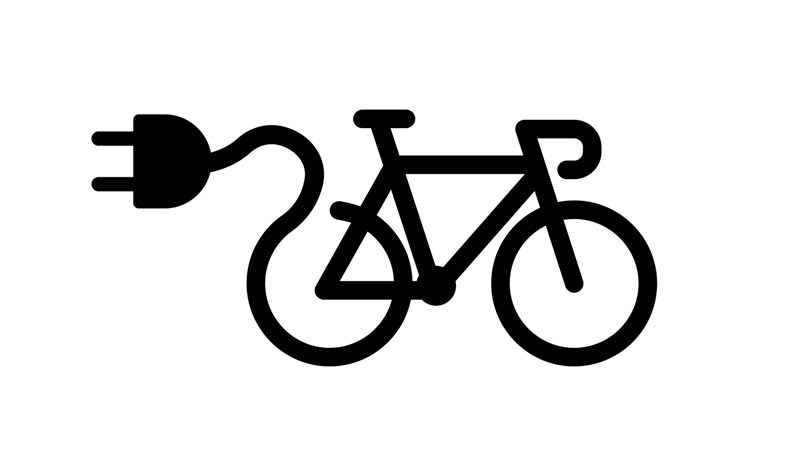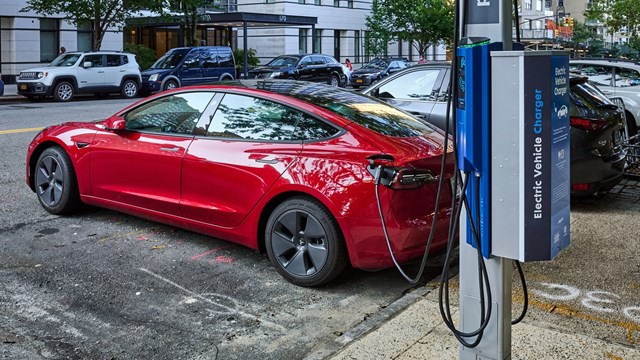Electric bikes and scooters became ubiquitous during the darkest days of the pandemic, when food delivery workers relied on them to get them from one neighborhood to another quickly. With that increasing popularity however, has come increased incidents of explosions and fires - some deadly - caused by the vehicles’ highly combustible lithium batteries. The most recent, in a Manhattan high-rise, occurred the day before the New York City Marathon. A marathon runner staying in a nearby apartment in the same building was treated for smoke inhalation. Luckily, she was well enough to run the race the following day.
What Are Electric Bikes?
Simply put, an electric bicycle, also known as an e-bike, is a bicycle with an integrated electric motor used to assist propulsion. They’re favored by food delivery workers, whose workload skyrocketed during the pandemic, when New Yorkers came to rely even more heavily than usual on having food (and many other items) delivered directly to their buildings. Even with covid on the wane, demand for speedy delivery service remains high, and so workers have stuck by their e-bikes to keep up.
There are many kinds of e-bikes on the market, but they generally fall into two broad categories: bikes that assist the rider's own pedal-power, and bikes that add a throttle, functioning more like a moped. Both can still be pedaled by the rider and have maximum speeds around 25mph; neither type are considered motorcycles. The power source for e-bikes are typically lithium-ion batteries, which, while nearly silent and significantly less polluting than fossil-fueled scooters and mopeds, have been known in many circumstances to catch fire.
Would You Park Your Motorcycle in Your Living Room?
Though not motorcycles, e-bikes do have a lot in common with their gas-powered cousins in that they’re much bulkier than traditional bicycles, and require a parking spot. Unlike motorcycles, e-bikes also require charging - and that’s where things can get dangerous. The paucity of e-charging stations in New York City, along with the cost involved with installing public charging facilities, leaves users with little choice but to charge their e-bikes at home. The combination of combustible lithium-ion battery and inappropriate or insufficient charging equipment can be deadly. While it’s tempting to think of e-bikes as bicycles with a little extra oomph, their similarities to motorcycles and mopeds make that a dangerous misjudgment. Ask yourself: would you park your motorcycle in your living room? Would the board of your building let you drag your motorcycle through the lobby and up the elevator? Definitely not - and the same applies to e-bikes.
Regulating E-bikes
Co-op and condo living is in many ways ‘organic.’ Problems and issues are dealt with as they develop. Regulating e-bikes and e-scooters for the benefit and safety of the residents is one of those potential issues that wasn’t on most boards’ or managers’ radar until just recently. So now that they’re here and unlikely to disappear any time soon, what right and responsibility do boards have when it comes to regulating the presence of e-bikes in their buildings?
“As with other challenges boards are faced with from time to time,” says Mark Hakim, an attorney with Schwartz Sladkus Reich Greenberg Atlas, a law firm based in Manhattan, “only time, patience, and ascertaining facts will determine the best course for a building when it comes to regulating e-bikes. [As for] whether to ban them or not, or to impose a different rule, I wouldn’t necessarily have a knee-jerk reaction and ban anything until all is known - including risks and possible preventive measures.”
“That said,” Hakim continues, “I believe that co-ops can likely prohibit the scooters and similar items, presuming the ban is for the types of batteries that power them. Generally speaking, this type of prohibition should be enacted via house rule. In a perfect world, I always opt to amend a proprietary lease as opposed to adopting a house rule, but many buildings are usually quorum-challenged, and a supermajority of shareholders is often not in the proverbial cards. Proprietary leases contain many provisions that ban items, including those prohibiting storage or use of an apartment which would raise the insurance rates of a building. Clearly the maintenance and storage of flammable items such as lithium batteries could fall under that purview.”
“That said,” Hakim continues, “I would prefer having something from the insurance broker or carrier advising that allowing such charging in apartments would raise the insurance premiums if the board was to rely on that provision. I would also say that boards may ultimately have to make exceptions for other items that run on lithium batteries, such as - I am told - ventilators. Thus my initial statement of patience and ascertaining facts where there is no other alternative. That is, of course, on a case-by-case basis. I would believe a condominium could do the same, but would feel more comfortable following a review of the specific bylaws in each instance to see what ‘teeth’ that board has to enforce its house rules.”







Leave a Comment